Barrier Saltbush,
Ruby Saltbush
Display all 10 images

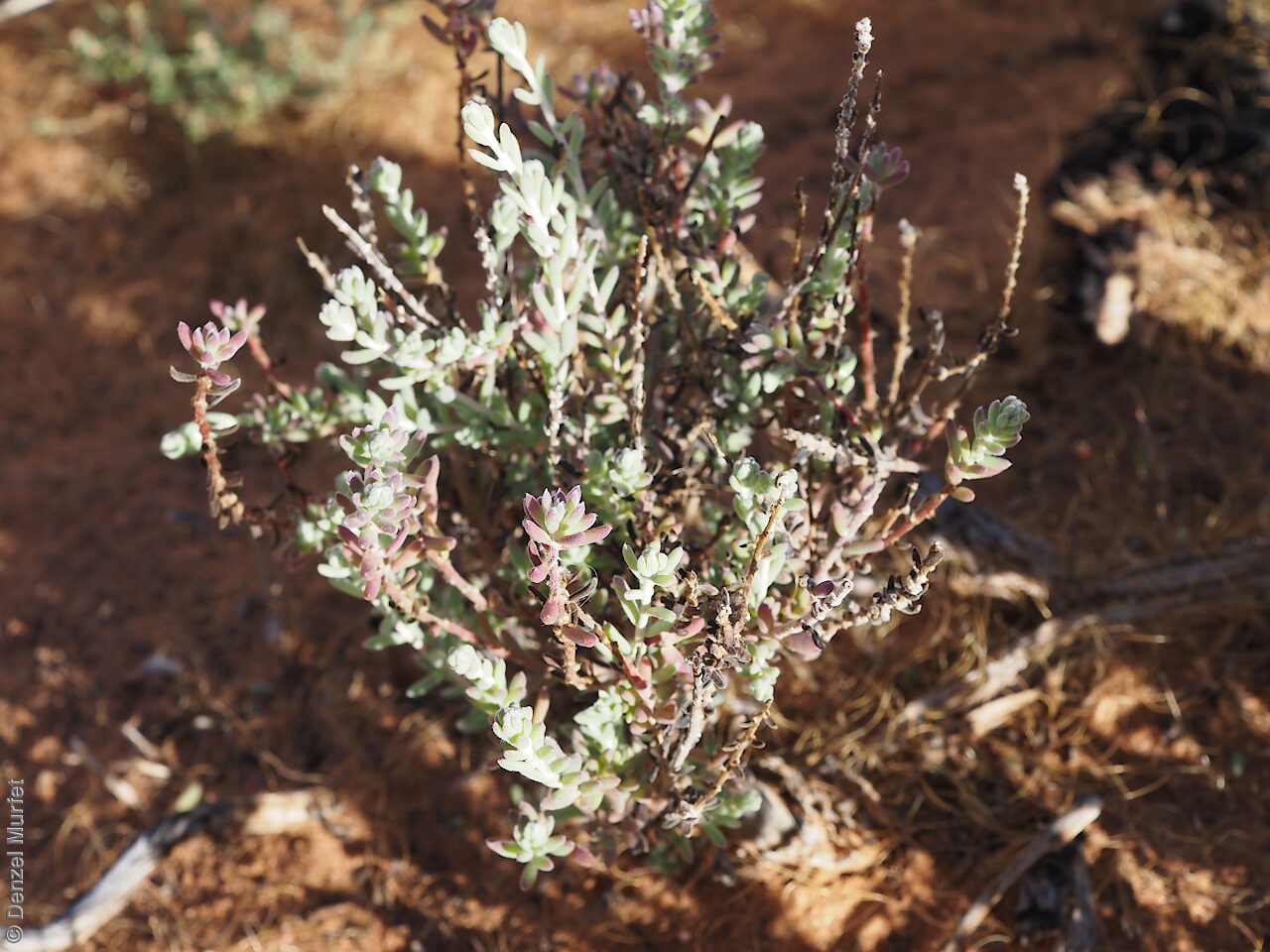

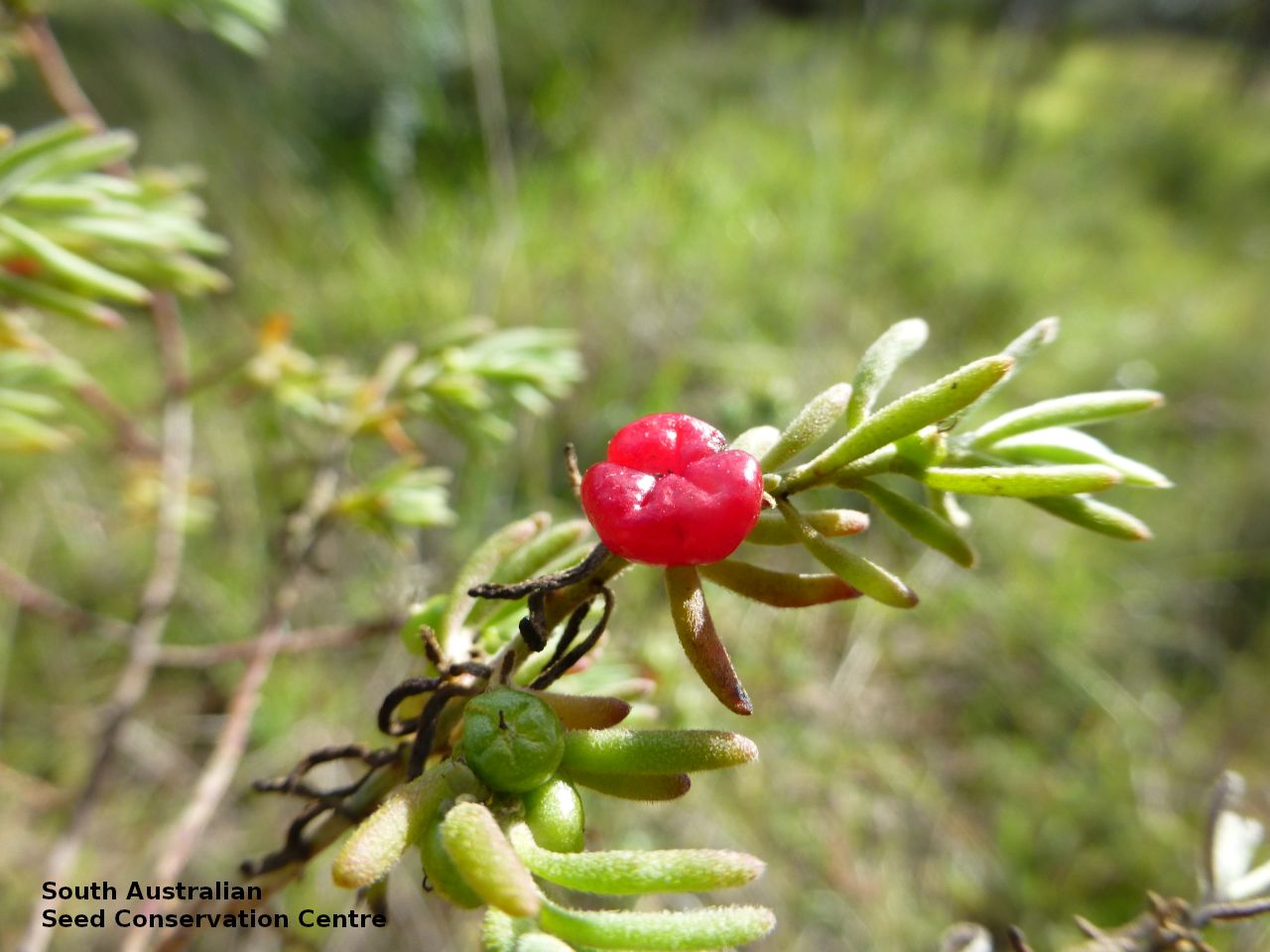
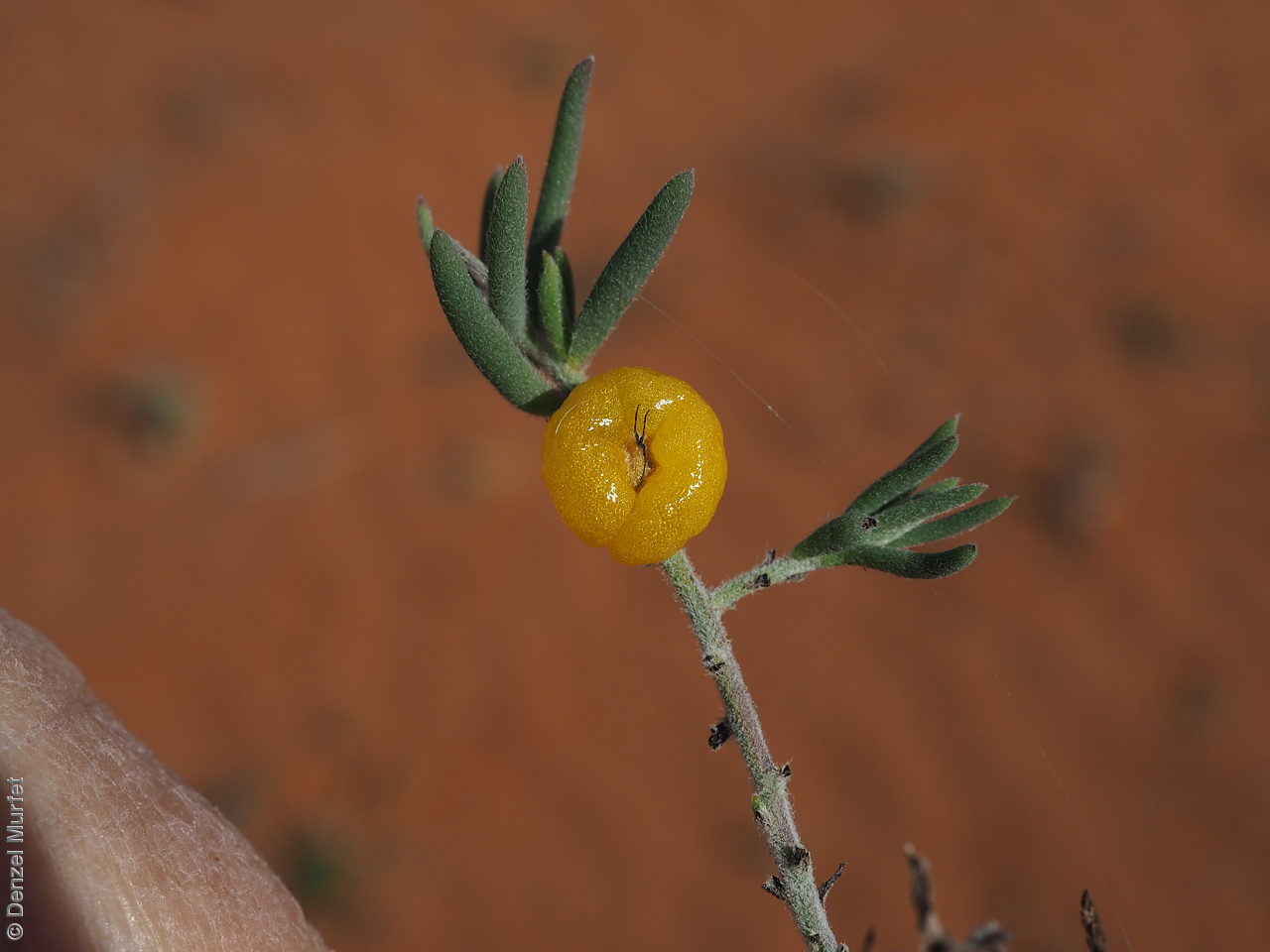
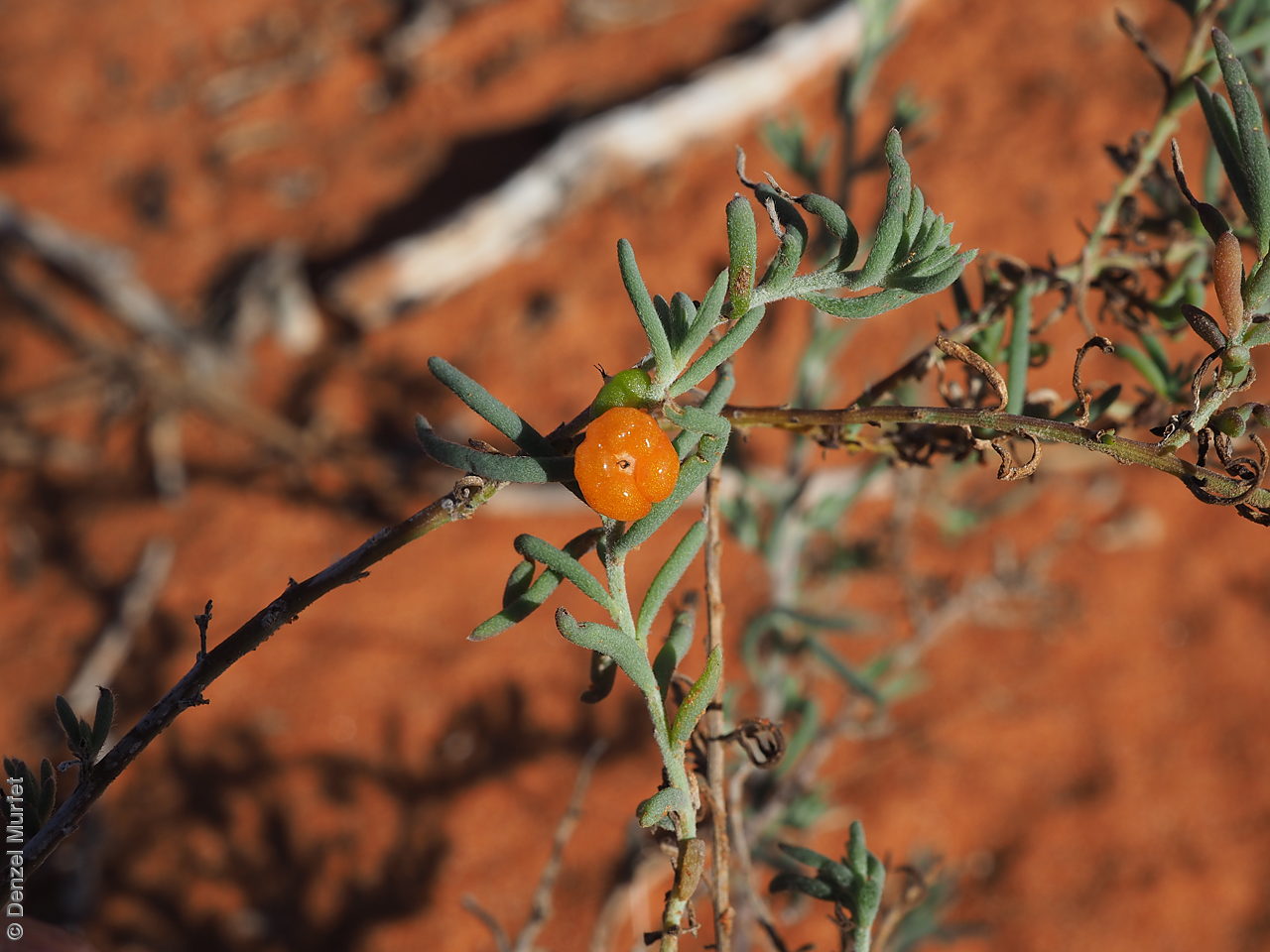

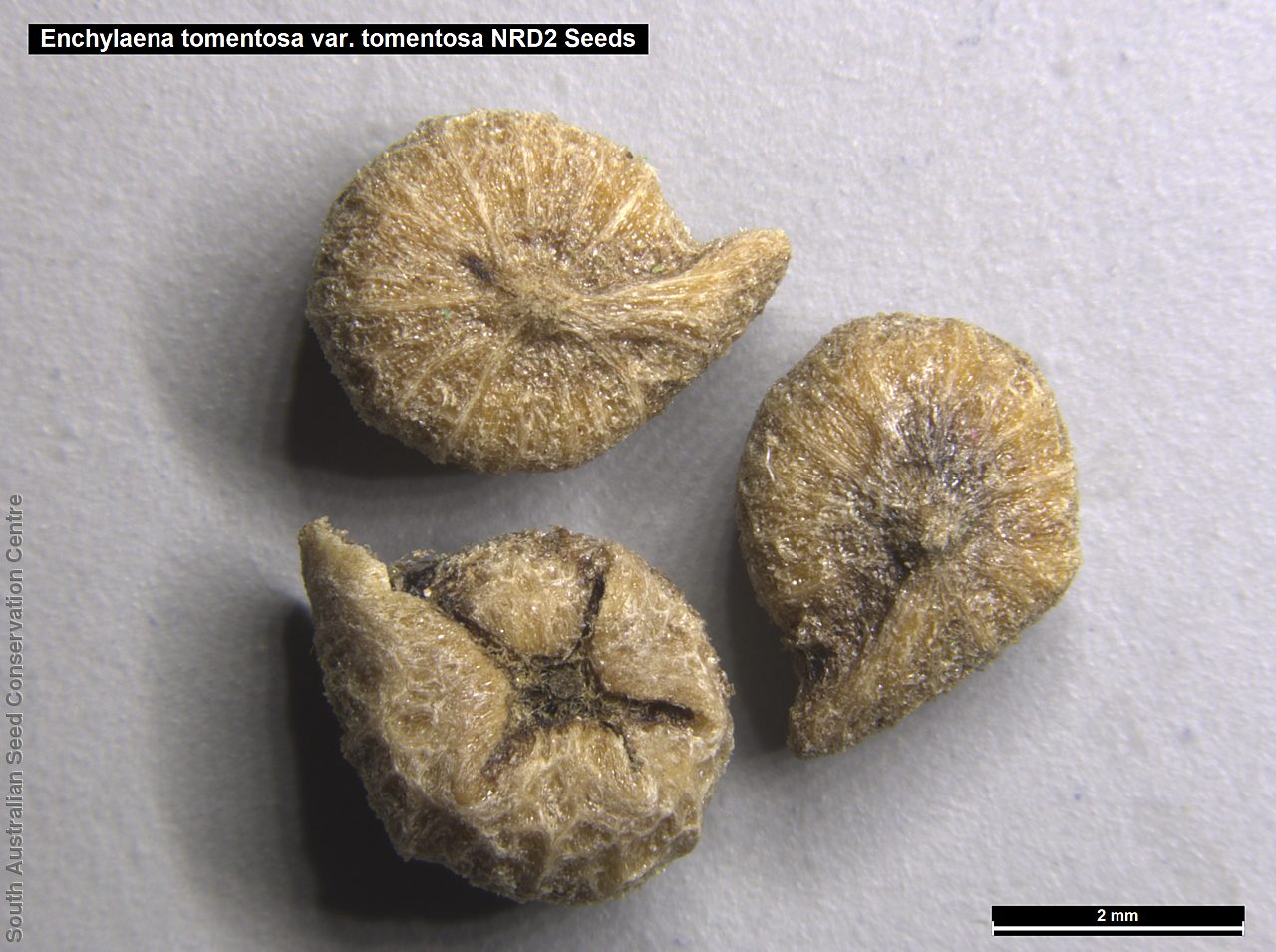
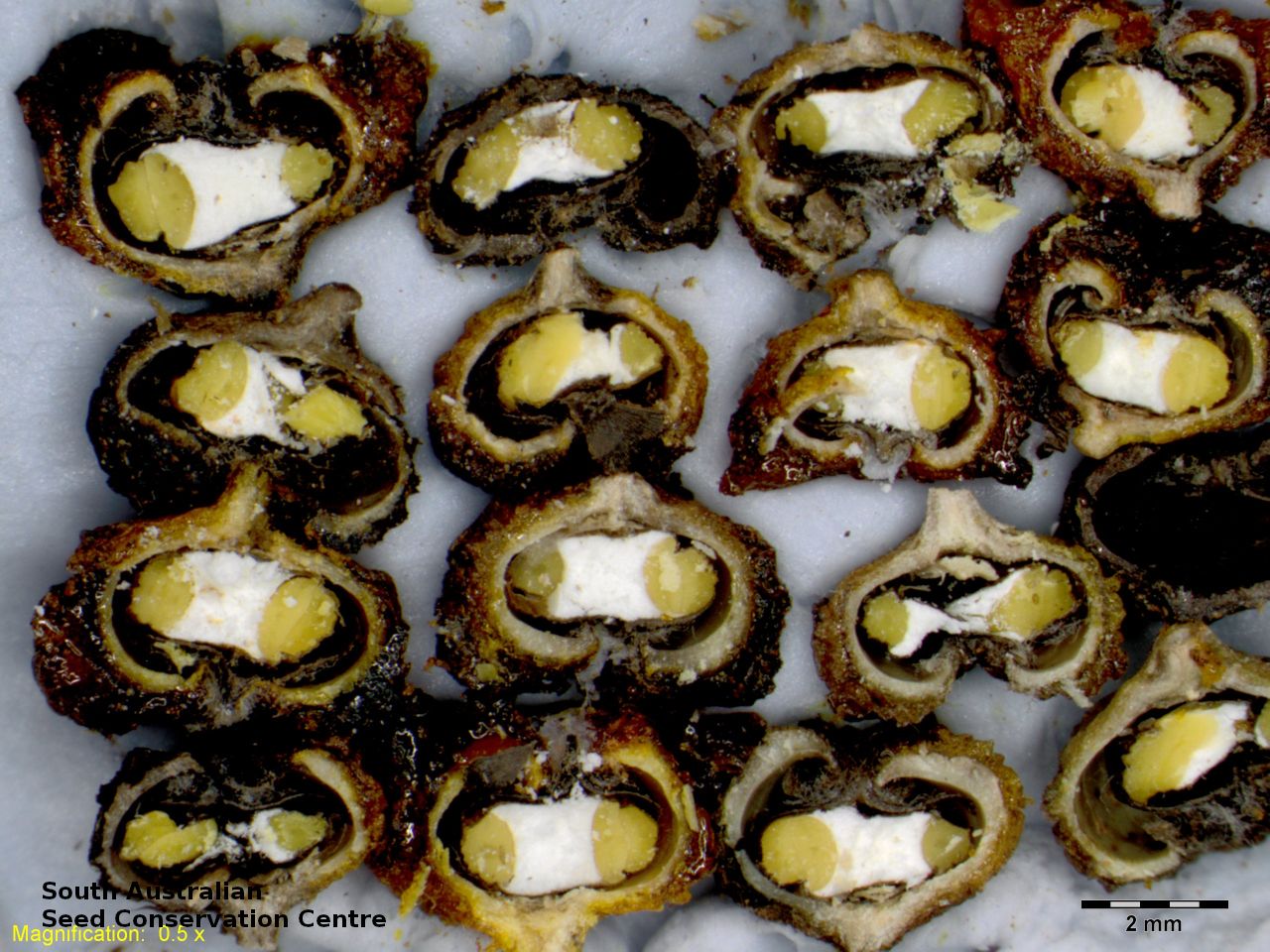
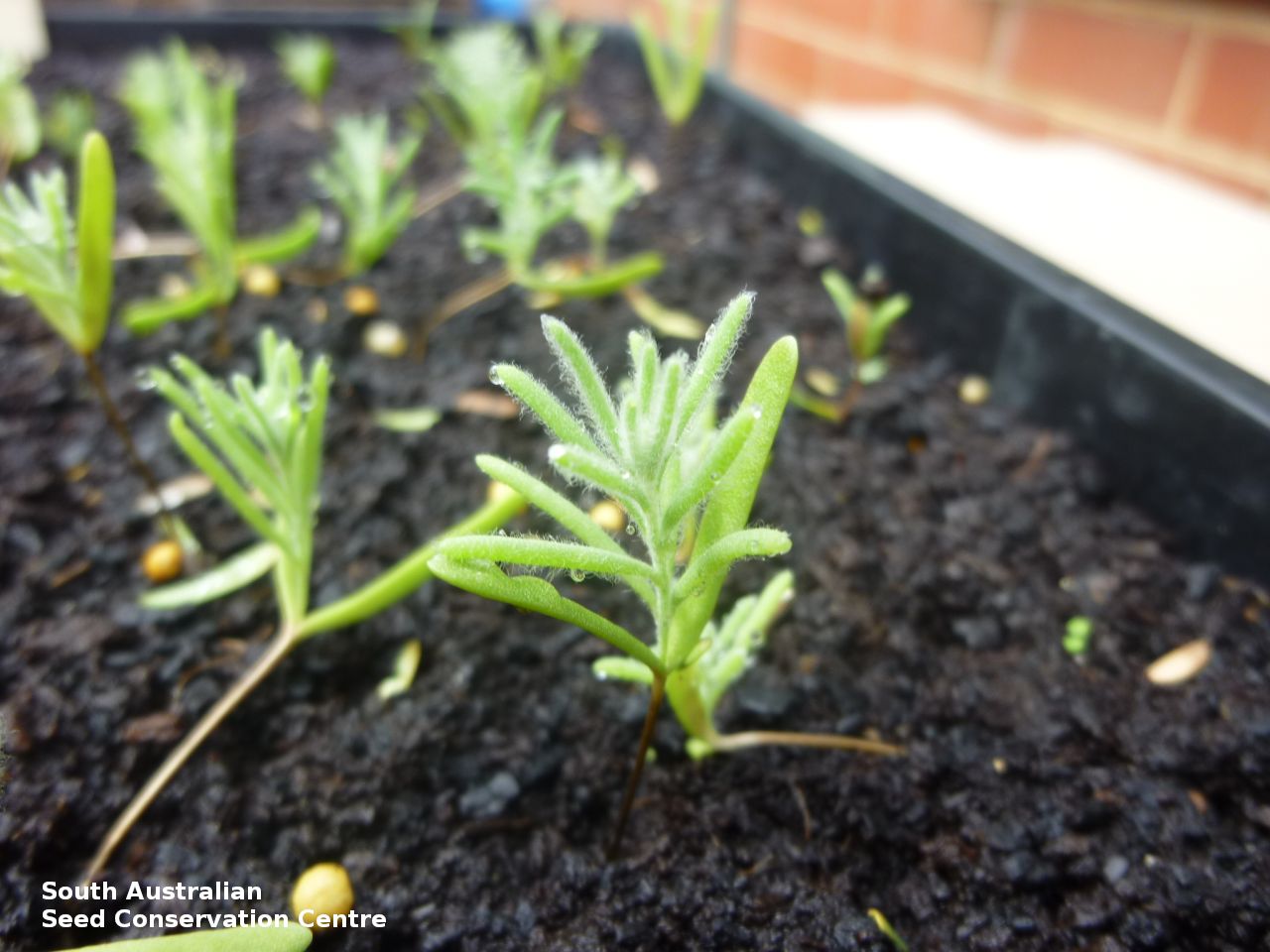
Regional Species Conservation Assessments per IBRA subregion.

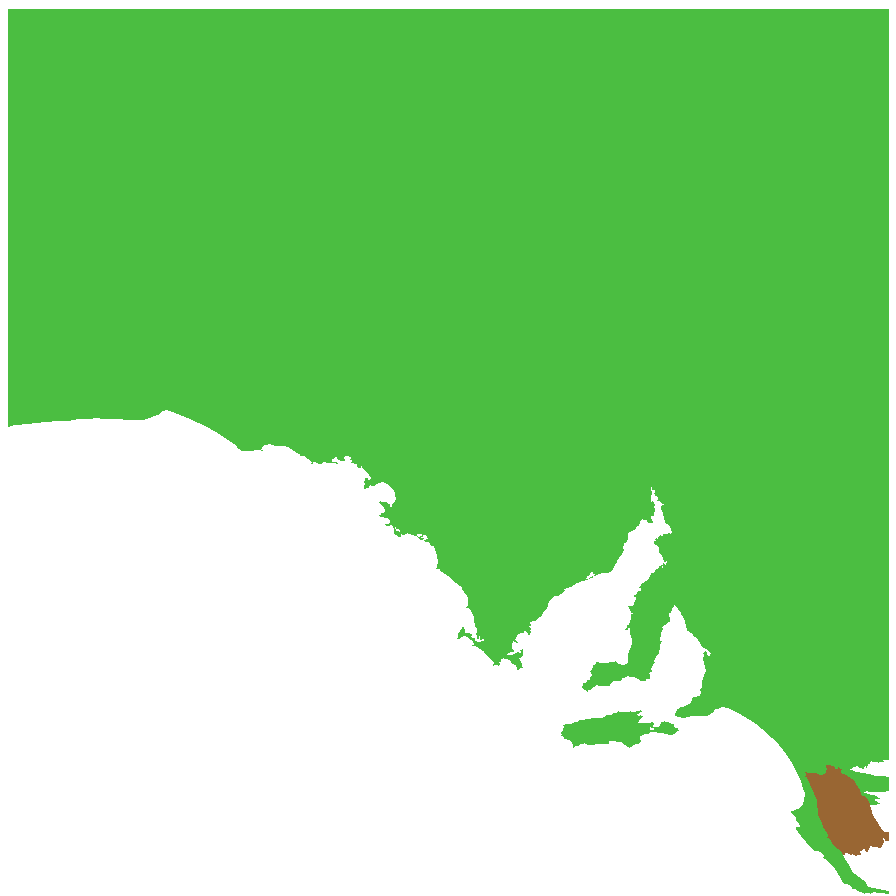
Least concern
Near threatened
Rare
Vulnerable
Endangered
Critically endangered
Extinct
Data deficient
Adelaide
Arkaroola
Ceduna
Coober Pedy
Hawker
Innamincka
Marla
Marree
Mount Gambier
Oodnadatta
Renmark
Wudinna
Keith
Yunta
Display IBRA region text
| Bridgewater (NCP01) | Naracoorte Coastal Plain | Least Concern |
| Lucindale (NCP03) | | Rare (IUCN: RA d(i,ii)) [edge of range; not typical in region] |
| Tintinara (NCP04) | | Least Concern |
| Kangaroo Island (KAN01) | Kanmantoo | Least Concern [easy to grow] |
| Fleurieu (KAN02) | | Least Concern [easy to grow] |
| Mount Lofty Ranges (FLB01) | Flinders Lofty Block | Least Concern [easy to grow] |
| Broughton (FLB02) | | Least Concern |
| Olary Spur (FLB03) | | Least Concern |
| Southern Flinders (FLB04) | | Least Concern |
| Northern Flinders (FLB05) | | Least Concern |
| Central Flinders (FLB06) | | Least Concern |
| Southern Yorke (EYB01) | Eyre Yorke Block | Least Concern |
| St Vincent (EYB02) | | Least Concern |
| Eyre Hills (EYB03) | | Least Concern |
| Talia (EYB04) | | Least Concern |
| Eyre Mallee (EYB05) | | Least Concern |
| South Olary Plain (MDD01) | Murray Darling Depression | Least Concern |
| Murray Mallee (MDD02) | | Least Concern |
| Murray Lakes and Coorong (MDD03) | | Least Concern (Probable Increase) |
| Lowan Mallee (MDD04) | | Least Concern |
| Braemer (MDD07) | | Least Concern |
| Murray Scroll Belt (RIV06) | Riverina | Least Concern |
| Myall Plains (GAW01) | Gawler | Least Concern |
| Gawler Volcanics (GAW02) | | Least Concern |
| Gawler Lakes (GAW03) | | Least Concern |
| Arcoona Plateau (GAW04) | | Least Concern |
| Kingoonya (GAW05) | | Least Concern |
| Torrens (GAW06) | | Least Concern |
| Roxby (GAW07) | | Least Concern |
| Commonwealth Hill (GAW08) | | Least Concern |
| Maralinga (GVD03) | Great Victoria Desert | Least Concern |
| Kintore (GVD04) | | Least Concern |
| Tallaringa (GVD05) | | Least Concern |
| Yellabinna (GVD06) | | Least Concern |
| Carlisle (NUL01) | Nullarbor | Least Concern |
| Nullarbor Plain (NUL02) | | Least Concern |
| Yalata (NUL03) | | Least Concern |
| Hampton (HAM01) | Hampton | Least Concern |
| Barrier Range (BHC01) | Broken Hill Complex | Least Concern |
| Barrier Range Outwash (BHC04) | | Least Concern |
| Bimbowrie (BHC05) | | Least Concern |
| Curnamona (BHC06) | | Least Concern |
| Simpson Desert (SSD02) | Simpson Strzelecki Dunefields | Least Concern |
| Dieri (SSD03) | | Least Concern |
| Warriner (SSD04) | | Least Concern |
| Strzelecki Desert (SSD05) | | Least Concern |
| Breakaways (STP01) | Stony Plains | Least Concern |
| Oodnadatta (STP02) | | Least Concern |
| Murnpeowie (STP03) | | Least Concern |
| Peake-Dennison Inlier (STP04) | | Least Concern |
| Macumba (STP05) | | Least Concern |
| Witjira (STP06) | | Least Concern |
| Baltana (STP07) | | Least Concern |
| Sturt Stony Desert (CHC02) | Channel Country | Least Concern |
| Diamantina-Eyre (CHC04) | | Least Concern |
| Coongie (CHC06) | | Least Concern |
| Lake Pure (CHC07) | | Least Concern |
| Mann-Musgrave Block (CER01) | Central Ranges | Least Concern |
| Watarru (CER02) | | Least Concern |
| Everard Block (CER03) | | Least Concern |
| Tieyon (FIN03) | Finke | Least Concern |
| Pedirka (FIN04) | | Least Concern |
| 3 of 4 subregions | Naracoorte Coastal Plain | Least Concern , Rare |
| 2 of 2 subregions | Kanmantoo | Least Concern |
| 6 of 6 subregions | Flinders Lofty Block | Least Concern |
| 5 of 5 subregions | Eyre Yorke Block | Least Concern |
| 5 of 6 subregions | Murray Darling Depression | Least Concern |
| Murray Scroll Belt (RIV06) | Riverina | Least Concern |
| 8 of 8 subregions | Gawler | Least Concern |
| 4 of 4 subregions | Great Victoria Desert | Least Concern |
| 3 of 3 subregions | Nullarbor | Least Concern |
| Hampton (HAM01) | Hampton | Least Concern |
| 4 of 4 subregions | Broken Hill Complex | Least Concern |
| 4 of 4 subregions | Simpson Strzelecki Dunefields | Least Concern |
| 7 of 7 subregions | Stony Plains | Least Concern |
| 4 of 4 subregions | Channel Country | Least Concern |
| 3 of 3 subregions | Central Ranges | Least Concern |
| 2 of 2 subregions | Finke | Least Concern |
Botanical art
Kath Alcock paintings: 9
Prior names
Enchylaena tomentosa var. villosa
Common names
Barrier Saltbush
Ruby Saltbush
Etymology
Enchylaena from the Greek 'egchlos' meaning fleshy, succulent and 'laina' meaning lined cloak, alluding to the succulent fruiting perianth. Tomentosa from the Latin 'tomentum' meaning wool, hair, referring to the hairs on the plant.
Distribution and status
A widespread species found across South Australia in a variety of habitats. Occurs mainly in slightly saline soil. Common.
Herbarium regions: North Western, Lake Eyre, Nullarbor, Gairdner-Torrens, Flinders Ranges, Eastern, Eyre Peninsula, Northern Lofty, Murray, Yorke Peninsula, Southern Lofty, Kangaroo Island, South Eastern, Green Adelaide
NRM regions: Adelaide and Mount Lofty Ranges, Alinytjara Wilurara, Eyre Peninsula, Kangaroo Island, Northern and Yorke, South Australian Arid Lands, South Australian Murray-Darling Basin, South East
AVH map: SA distribution map (external link)
Plant description
Shrubby perennial to 1m high; branches decumbent to erect; tomentose. Leaves semi-terete, succulent to approximately 15mm long; villous. Inconspicous small flowers; solitary, emerging from the axis of the leaf and stem. Flowering May-November. Fruits are fruiting perianth depressed-globular, flat to deeply sunken in the centre; wing absent or crown-like and incurved; lobes glabrous but ciliolate to pubescent. Approximately 5mm in diameter; green, yellow or red (drying brown to black). Seeds are seeds are black/brown and disc shaped up to 1.5 mm diameter, with overlapping embryo tip sometimes forming a small beak. Seed embryo type is peripheral.
Seed collection and propagation
Collect seeds between December and April. Collect the fruits by running gloved fingers through branches to remove mature or drying fruits. Collect when fruit is red and seed inside is brown and firm. Soak the fruit in 1% pectinase and water solution for at least 4 hours. Then gently rub the soaked fruits through a sieve to remove the fleshy and leave the remaining seeds to dry. Store the dried fruit heads with a desiccant such as dried silica beads or dry rice, in an air tight container in a cool and dry place. Germination 100%, seed scarified (covering structure removed) on 1% w/v agar, 12/12 dark/light, 23°C/9°C. See http://data.kew.org/sid
Germination table:
Display











